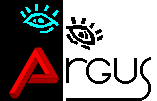

| Full-new revolutionary Multinode BinkStyle Fidonet-Technology Mailer for Windows 95 and Windows NT, featuring Dialup (Hydra, ZModem) and TCP/IP (ifcico, telnet, binkp) transports, native 32-bit multithread processing, multinode operation, comfortable graphical user interface, powerful burn-in Outbound Manager and Nodelist Tree Browser, Fax Receiving, Powerful Event System, Scheduling. |
Argus is an Open Source, free for non-commercial use, full-featured FTN Mailer designed to work as a multi-line system using two widely used data exchange transports - Dial-up networking and TCP/IP - simultaneously.
The lagrest FTN network is Fidonet with about 30,000 mail nodes world wide. Fidonet homepage is at www.fidonet.org.
Argus interacts with remote systems using protocols and technology standards described in this chapter. Because Argus is built on FTN Technology (FidoNet Technology Network), it supports standards and proposals developed by FTN commitee, common standards of FTN mail system functions are also supported by Argus.
Argus advantages as a innovative project are described in a FidoNews article "Announcing ARGUS FidoNet to Internet software".
This is the list of FTN standards and proposals that Argus is compliant to. Descriptions of those standards can be obtained from ftp.fidonet.org.
Argus is a Win32 native application, it is written using the advantages of Win32 Application Programming Interface (API) designed in Windows NT and Windows 95. The major advantage - multitasking - gives Argus the possibility to use system resources with maximum performance (especially on multi-processor systems), because most of communication processes could be divided into parallel ones. At the same time, using separate threads for events handling, communication data reading and writing allows Argus to work with a minimum system load, so all other tasks running in a system can function without any delays.
Because Argus is a true multi-line mailing system, configuration and co-ordination of all lines is truly quick and easy. There are no special limitations to number of concurrent connections - it just depends on a users' possibilities and requirements. The data transfer with a node can be established either via Dial-up or TCP/IP transport - this is determined by transport availability.
Dial-up lines can be started automatically at Argus start-up or manually by a user's request with System / Open Dial-up Line menu command. Each dial-up line requires a communication port, so the number of dial-up lines being active simultaneously is limited by the number of communication ports in a system.
TCP/IP lines are created and disposed as a result of TCP/IP Daemon functioning. As soon as Argus detects an incoming TCP/IP connection or a new poll via TCP/IP in the Poll Manager, Daemon creates a new mailing system line and starts a mail transfer protocol. When a TCP/IP session finishes, Daemon closes the line and ends the connection.
Argus supports protocol-independent transport interface of WinSocket 2.0 (which is currently included in Windows NT version 4.0). Using WinSocket 2.0 allows you work seamlessly with a number of transport protocols such as TCP/IP, X.25 etc., use protocol-independent symbolic host name resolution (for example, SAP, X.500 etc., not only DNS), Win32-overlapped input/output modes, shared sockets, conditional acceptance etc.
The current version of Argus supports the most widely used WAN protocol - TCP/IP. In future versions we are planning to implement support for other protocols.
In regard of WinSock 2.0 and Win32 use and the mulit-threaded program architecture, host name resolution, connection and disconnection's, input/output operations with TCP/IP are functioning as parallel processes; such way of operation provides optimal resource usage and minimum system load.
TCP/IP Daemon is the centre of control for all TCP/IP operations.